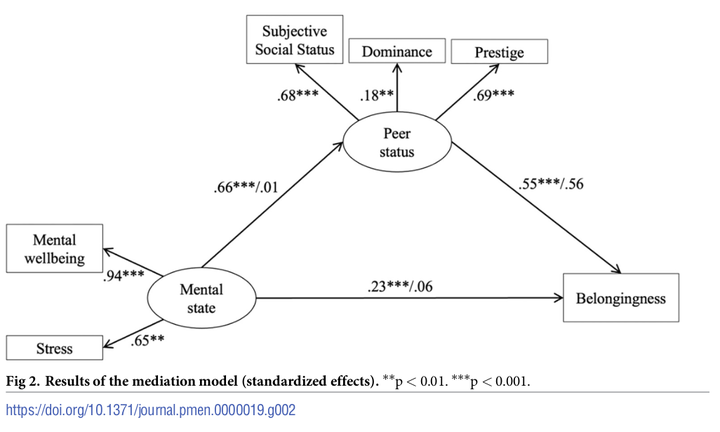Interplay of mental state, personality, and popularity among peers in shaping belongingness of first-year students: A cross-sectional study

Abstract
Belonging to a university shapes wellbeing and academic outcomes for first-year students, yet this belongingness is harder to achieve for those from lower socio-economic back- grounds. This study delved into the flexible construct of status—the individual’s perceived position within the university’s social hierarchy and the strategy they adopt to achieve that position—and its impact on their belongingness. The objective was to identify key psycho- logical contributors that could impact first-year Psychology students expected social status and thereby their belongingness. A cross-sectional study tested first year Psychology stu- dents entering university in 2021 and 2022.The first-year students completed a battery of questionnaires to ascertain their status, belongingness to the university, mental state, and personalities. Structural equation modelling (SEM) was employed to evaluate a social eco- logical model focusing on belongingness. This analysis investigated the mediating role of peer status (popularity among peers) in the relationship between mental state and belong- ingness, and the moderating influence of personality traits on the connections between mental state and peer status. Both the mediation and moderation effects were statistically significant after adjusting for gender and ethnicity. The findings offer insights into how uni- versity administrations can effectively support students, particularly those from lower socio- economic backgrounds, in enhancing their social status among peers and fostering a stron- ger belongingness, thereby promoting their overall mental wellbeing and success in their academic pursuits.